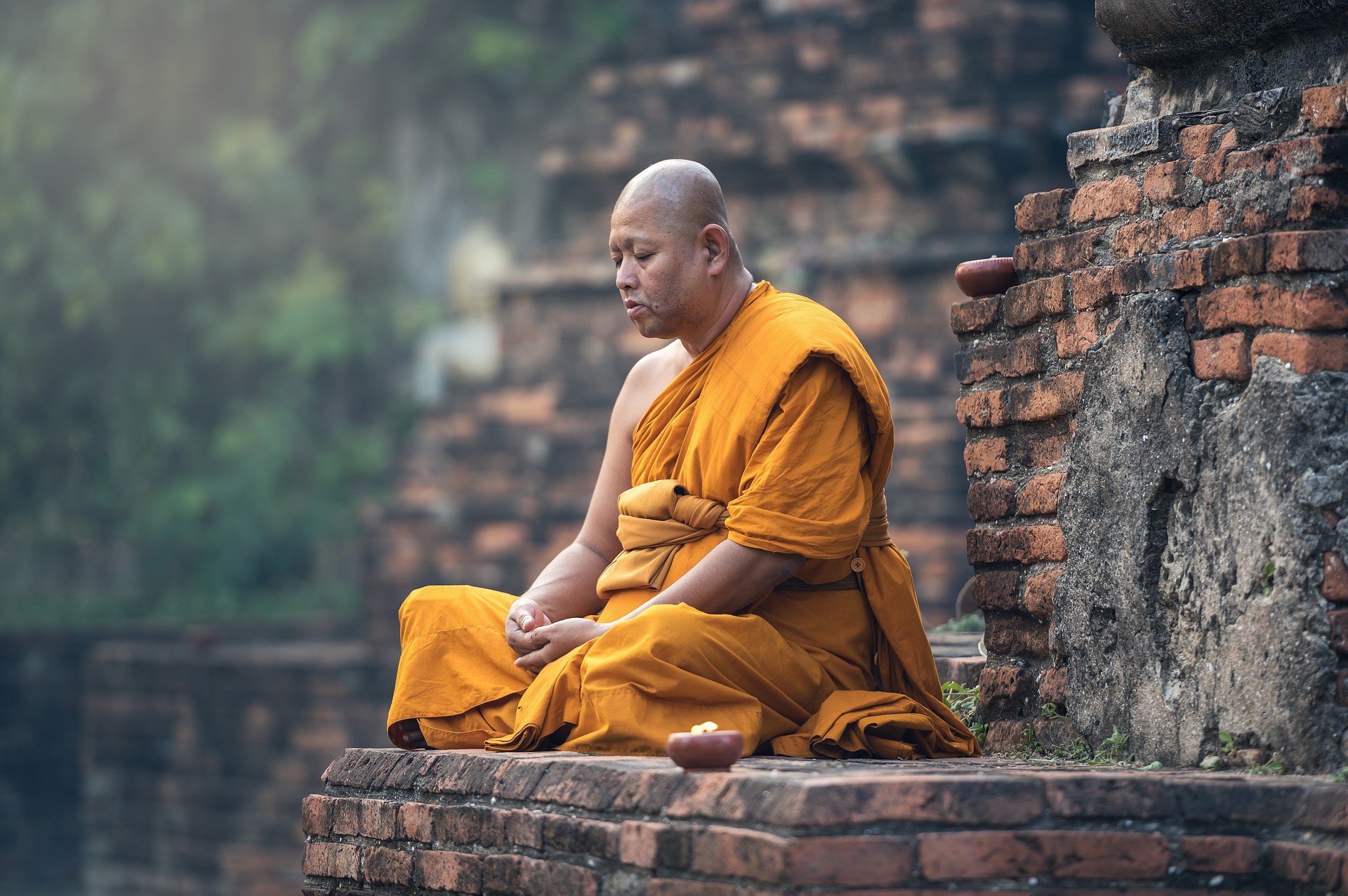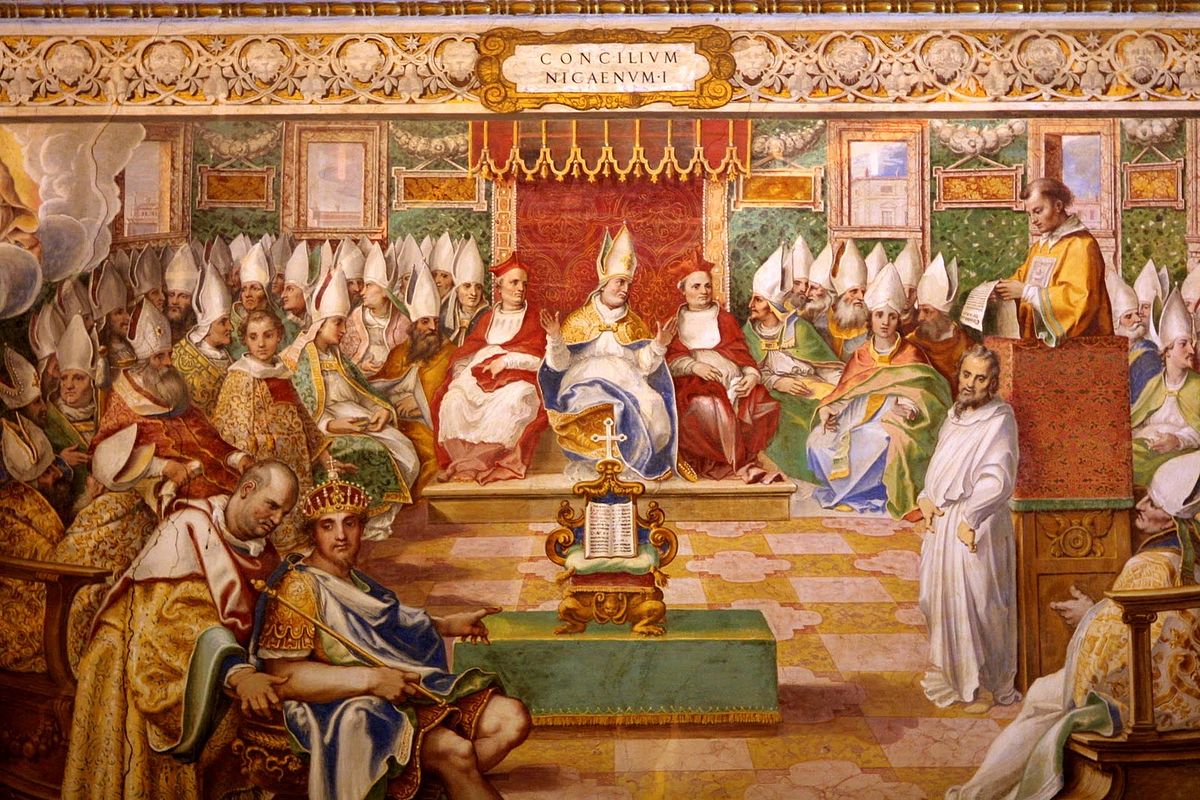
An opinion I have held for the longest time but only recently learned to put into words. Comments and thoughts are welcome!
In the twenty-first century, Buddhism is widely considered one of the world’s major religions. With more than seven million devotees and established monastic communities worldwide, it is reasonable to categorize Buddhism as a religion. However, after reaching enlightenment, the Buddha did not preach a religion – more accurately, he proposed a logical step-by-step method of analyzing human nature and its consequences, and identified a way to transcend its resulting existential suffering. These teachings form the basis of the early Buddhism (Siderits, “Buddha.”). Over the centuries, his teachings disseminated and ceremonies and rites were gradually introduced, becoming fundamental parts of the Buddhist tradition. Thus, the transformation of a philosophical ideology into a world religion was complete. Noting this, the thesis will attempt to justify that early Buddhism was, in fact, a philosophical way of thinking about existence and its consequences. This argument is made primarily on the basis of the logical, sequential structure of the Four Noble Truths. In addition, Buddha’s teaching method, as shown in the Dhammachakkappavattana Sutta, Sathipatanna Sutta, Tevijja Sutta, and Mahaparinibbana Sutta, promotes inquisitiveness, independent thought, and self-reliance.
Before proceeding, it is worthwhile to first lay out several definitions. Firstly, in the context of this essay, ‘early Buddhism’ will be defined as the early articulation of the Four Noble Truths and the Noble Eightfold Path. The texts that further elucidate and dissect these two teachings will be referenced. Next, the Oxford Dictionary defines religion as the belief in and worship of a superhuman controlling power, especially a personal God or gods. In broader terms, religion can also be characterized as a particular system of faith and worship. Next, the same source defines philosophy as the study of the fundamental nature of knowledge, reality, and existence. In this essay, these definitions of religion and philosophy will be used when examining the core Buddhist teachings: the Four Noble Truths and the Noble Eightfold Path.

(source: buddhanet.com)
A canonical presentation of these teachings appear in the Dhammachakkappavattana Sutta (Lopez 177-181), in which the newly awakened Gautama Buddha preaches the Four Noble Truths to the five asceticsin the Deer Park. He begins with a straightforward question on what extremes should not be practiced, gradually directing his listeners toward a series of causal statements, exemplified below:
…the Tathagatha has awakened to the Middle Way, which gives rise to vision, which gives rise to knowledge, which leads to peace, to direct knowledge, to enlightenment, to Nibbana.
(Lopez, 179)
To further prove his point, he proceeds to methodically walk his listeners through the symptoms of suffering, diagnoses existence and its consequent attachments as the cause of suffering, provides reassurance that suffering can be eliminated, and prescribes the ‘cure’, Nirvana, which can be attained by practicing the Noble Eightfold Path. The entire sermon follows a logical cause-and-effect arc similar to that of the quote above; it is based on empirical observation of existence, as well as rational thought. Nonetheless, philosophical nature of the text is contradicted by the sutta’s more theological theme at its end, where Hindu devas are said to have rejoiced and a multitude of worlds shook at the sermon’s conclusion (Lopez, 181). This scene is easily justified, however, with the fact that the suttas were only committed to writing after more than 250 years of depending on oral tradition (Viollati, 2013). No doubt, two centuries is sufficient for more fantastical aspects to be gradually introduced to the teachings in this sutta.

This question-answer pattern is employed once again in the Sathipattana Sutta (Lopez 193-201), where the Buddha guides a group of ascetics in a practice of mindfulness to achieve ‘the surmounting of sorrow and lamentation’. He describes how, through active observation of mental and physical processes,
…a bhikku understands as it actually is: “This is suffering”…“This is the origin of suffering”…”This is the cessation of suffering”…”This is the way leading to the cessation of suffering.”
(Lopez 201)
This quote shows the Buddha’s emphasis on the understanding of both internal and external realities of existence. This understanding is all-encompassing, right down to comprehending and accepting the gruesome inevitability of death and decay. This sutta extensively highlights the importance of understanding, otherwise called avagacchati in Sanskrit, which alternatively means ‘know, ‘undertake’, ‘think of’, and ‘assure oneself’ (Glasshoff, 2017). This demonstrates a focus on undertaking the effort to mindfully examine and comprehend the conditions of both the physical world and the mind. This sutta, alongside the Dhammachakkappavattana Sutta, justifies the argument that Buddha taught a philosophic ‘scientific method’ devoid of elements of faith or worship of the divine, and focused instead on cultivating intelligent inquisition and mindfulness to achieve the cessation of suffering.
The Buddha’s emphasis on the mindful practice of his teachings remained undamped by his impending death. In the Mahaparinibbana Sutta (Lopez 158-177), he is shown delivering sermons even nearing his end. However, it is easy to use this sutta to prove that early Buddhism was, indeed, a religion. The sutta shows the Buddha proclaiming,
…the Tathagatha knows that in this assembly there is not one monk who has doubts about the Buddha, the Dhamma or the Sangha or about the path or the practice.
(Lopez, 172)
Here, he seems to be confident that all his followers have complete and absolute faith in his teachings. He also instructs Ananda that his remains be enshrined in a stupa so that those who offer flowers and incense in devotion will be granted happiness (Lopez 168). These two instances, amongst others in this sutta, seemingly prove that early Buddhism had a religious dimension to it. This assumption is easily refutable when the Mahaparinibbana Sutta’s earlier sections are more closely studied. After recovering from an illness in Vesali, the Buddha converses with Ananda, who questioned him about what the bhikkus would do in his absence. The Buddha (somewhat wearily), replies,
Therefore, Ananda, be islands unto yourselves, refuges unto yourselves, seeking no external refuge; with the Dhamma as your island, the Dhamma as your refuge, seeking no other refuge.
(Vajira and Story, 1998)
This statement alone neatly sums up the way he wanted his teachings to be practiced – through independent analysis and mindful practice of the Dhamma. He later reaffirms the importance of self-reliance and intelligent reasoning, teaching the bhikkus in attendance to carefully examine the claims anyone, regardless of seniority or standing, may make about the Dhamma, saying:
…you should neither approve nor disapprove his words…his words and expressions should be carefully noted, and compared with the Suttas and reviewed in the light of the discipline.
(Lopez 162)
Thus, it is reasonable to assume that his disciples abided by the principles he espoused not out of blind faith, but because they had critically and logically evaluated his teachings and concluded that it was indeed good. Some clarification is also required concerning the earlier use of the word ‘devotion’ by the Buddha. The Sanskrit word for devotion is bhakti, which can also mean homage. When interpreted as such, the Buddha’s request that devotees offer oblations could imply that they do so mindfully, and in the fashion of paying respects to a senior or teacher, as opposed to worshipping his remains in the way a person would pray to an omnipotent god. This shows that Buddha’s teachings remained strongly philosophical, even at the very end of his life.

Nevertheless, the argument that early Buddhism is more a philosophy than a religion is strongly opposed by the contents of the Tevijja Sutta (Lopez 181-193), in which the Buddha and two young Brahmins, Vasettha and Bharadvaja, have a discourse on which of latter’s’ teachers preaches the truth that will lead them to union with Brahma. In this sutta, the Buddha claims to have met Brahma, explicitly saying to one of the Brahmins:
For, Vasettha, I know Brahma and the world of Brahma, and the way to the world of Brahma, and the path of practice whereby the world of Brahma may be gained.
(Lopez 187)
The presence of religion here is irrefutable, and at first glance it seems as though early Buddhism was a religious reaction to refute the caste system helmed by the Brahmins. Upon more thorough examination, the Buddha makes the statement shown above to begin to explain his philosophy within the Brahmin worldview, and eventually guides the Brahmins toward thoughtful contemplation. These questions compel Vasettha and Bharadvaja to reflect upon how attachment and desire affect their superiors and their ability to achieve union with Brahma. The Buddha returns to drawing process-based scenarios that lead from one to situation to the next logical one. The Buddha was, in short, using Vedic Hinduism, to teach Buddhist philosophy.
The status of Buddhism today on whether it is a religion or philosophy remains a subject of contention. Early Buddhism, on the other hand, is more philosophical in nature. Undeniably, the tradition began within the bounds of Vedic Hinduism. Elements of this religion is extensively incorporated in both the stories about the Buddha and in his teachings. Nonetheless, as seen in the examples given earlier, many of these elements were used by the Buddha to enable his disciples to better understand his philosophical concepts. His core teachings of the Four Noble Truths and the Noble Eightfold Path are observations on the nature of existence and a guide on mindfully perceiving reality. Many of the familiar Buddhist concepts, such as karma, Nirvana, and rebirth, describe conditions of existence, and are closer to laws of nature than they are to religious doctrine. Having said this, regardless of the ambiguity surrounding early Buddhism’s status as either a philosophy or religion, one thing is clear – its principles have survived far longer than the 500 years that it was predicted to last, and that it will continue to benefit the global community for years to come.
References
Siderits, Mark. “Buddha.” Stanford Encyclopedia of Philosophy, Stanford University, 14 Feb. 2019, plato.stanford.edu/entries/buddha/#BudPhi.
The Oxford Dictionary. Oxford University Press, 1992.
Miles, Jack, et al. The Norton Anthology of World Religions. W.W. Norton & Company, 2015.
Violatti, Cristian. “Sutra.” Ancient History Encyclopedia, Ancient History Encyclopedia, 18 Mar. 2020, http://www.ancient.eu/Sutra/ .
Glashoff, Klaus. Sanskrit Dictionary for Spoken Sanskrit, spokensanskrit.org/index.php?tran_input=avagacchati&direct=se&script=hk&link=yes&mode=3.
Vajira, and Francis Story. “The Blessed One’s Deadly Sickness.” Maha-Parinibbana Sutta: Last Days of the Buddha, http://www.accesstoinsight.org/tipitaka/dn/dn.16.1-6.vaji.




